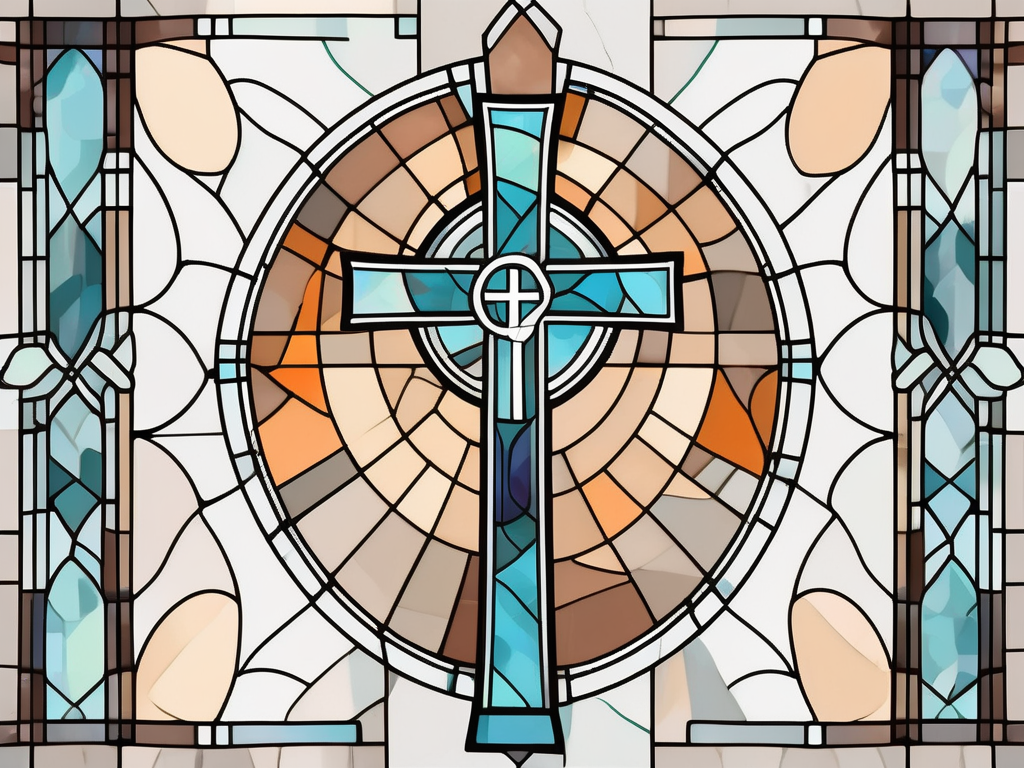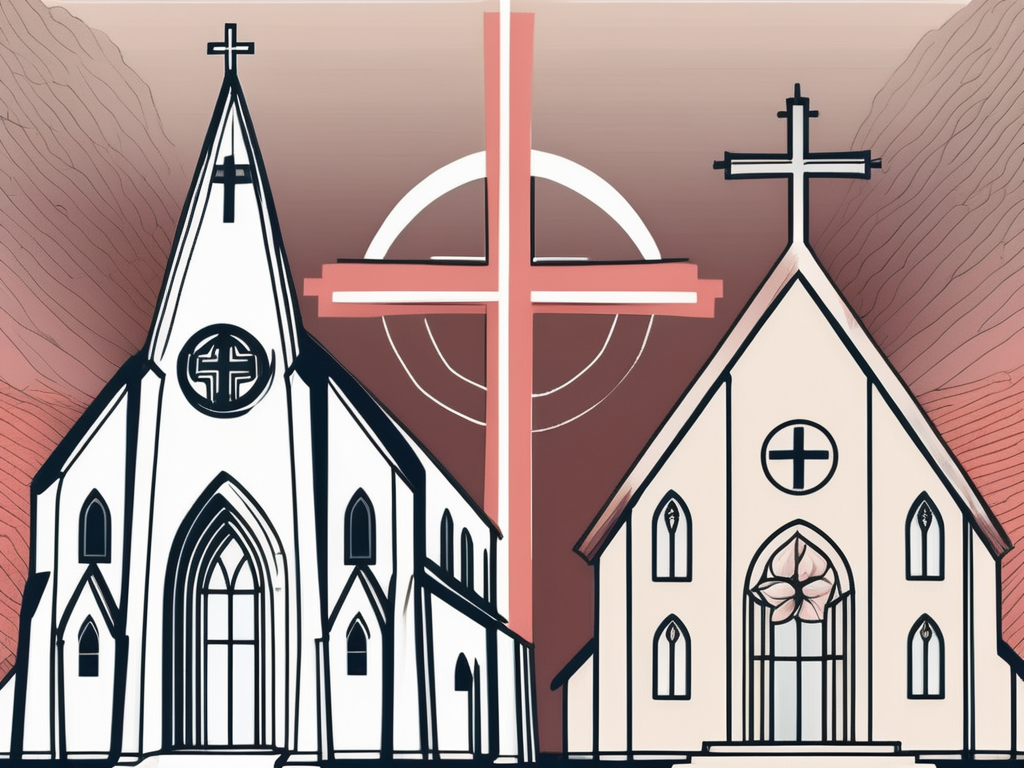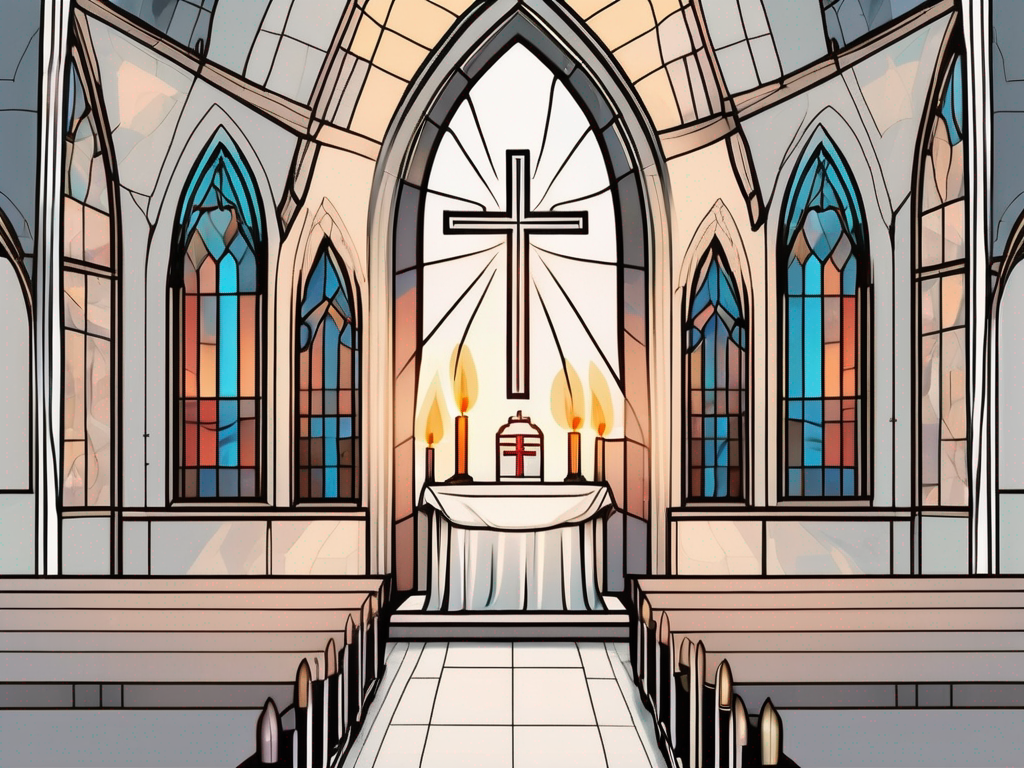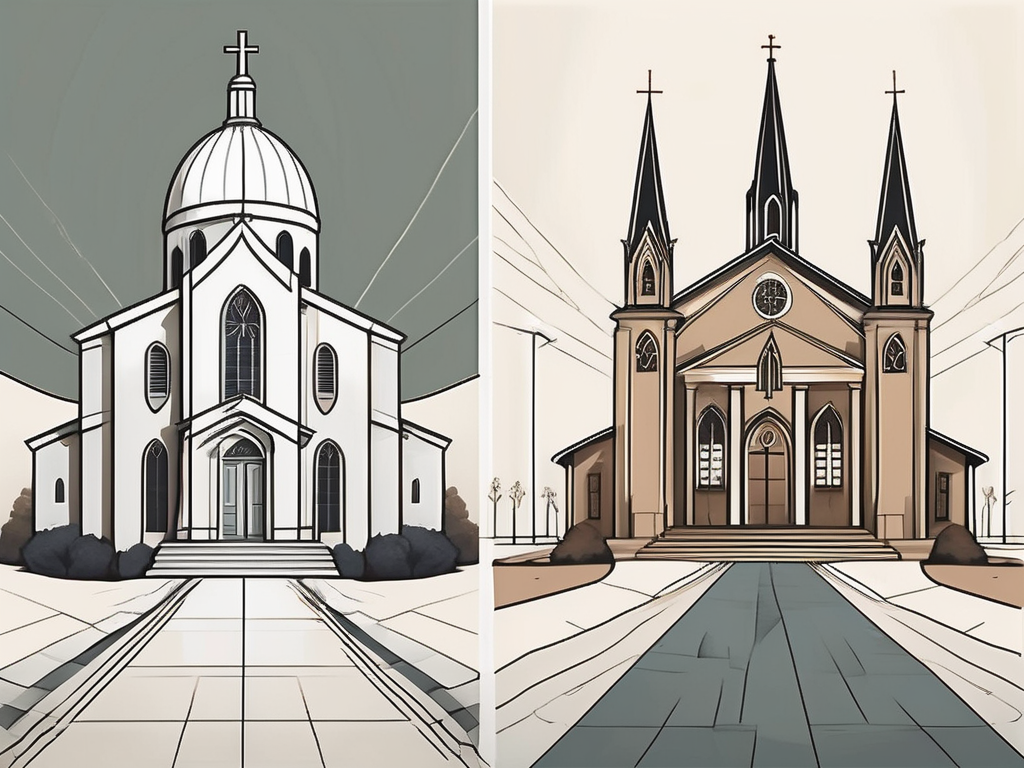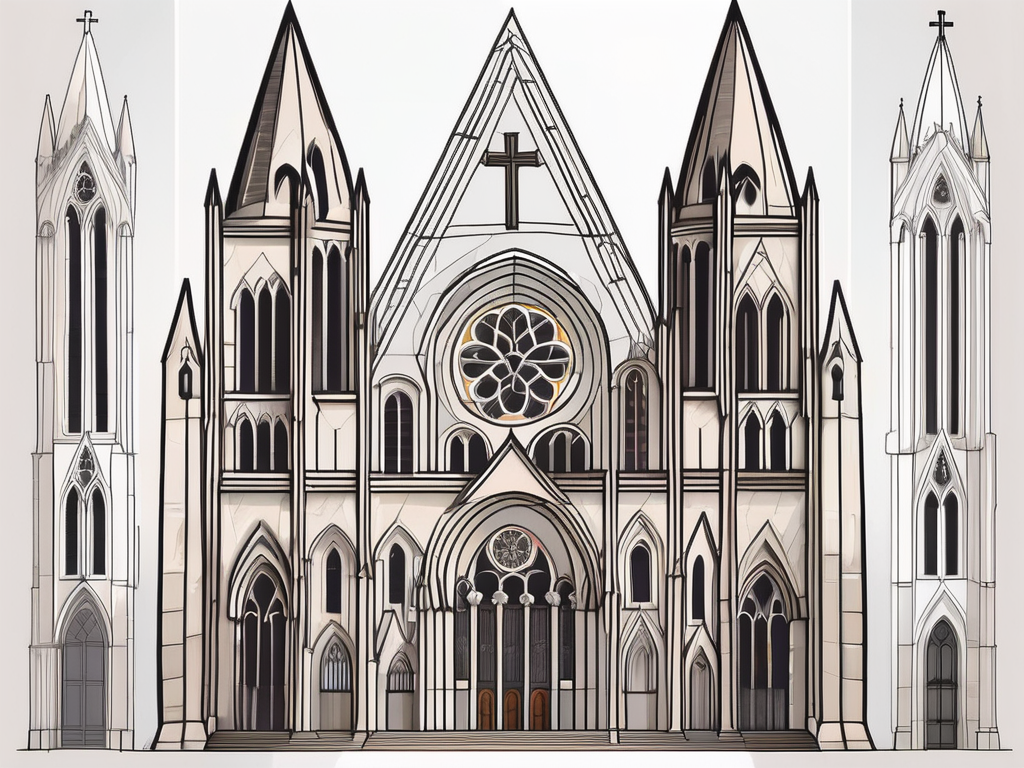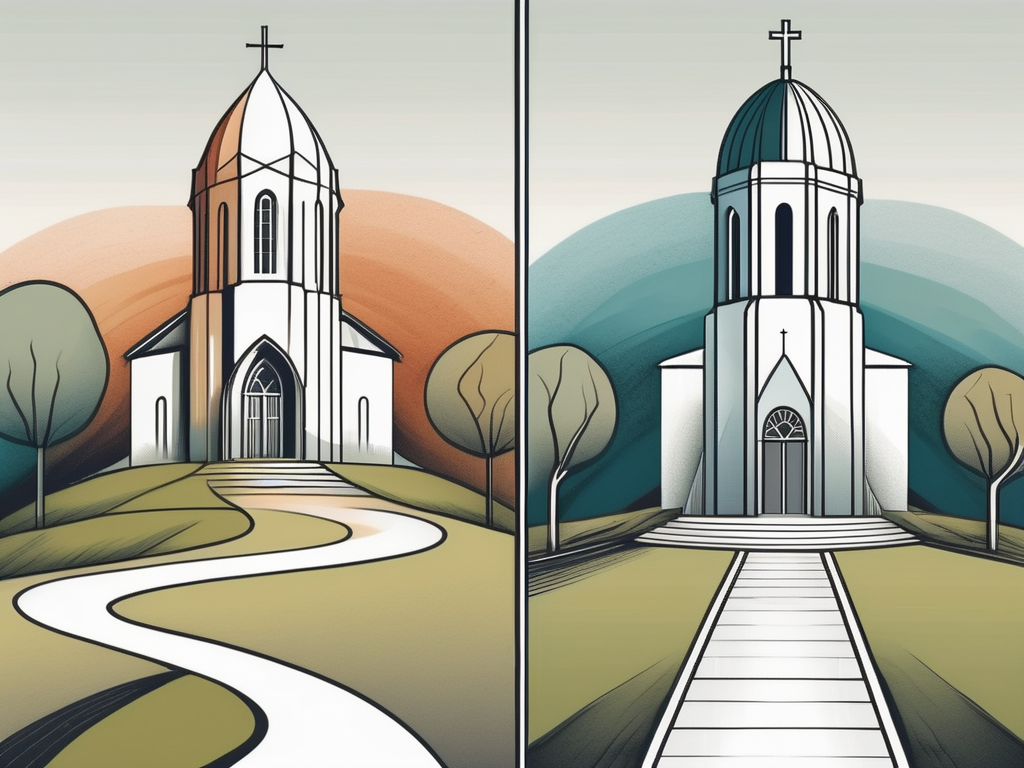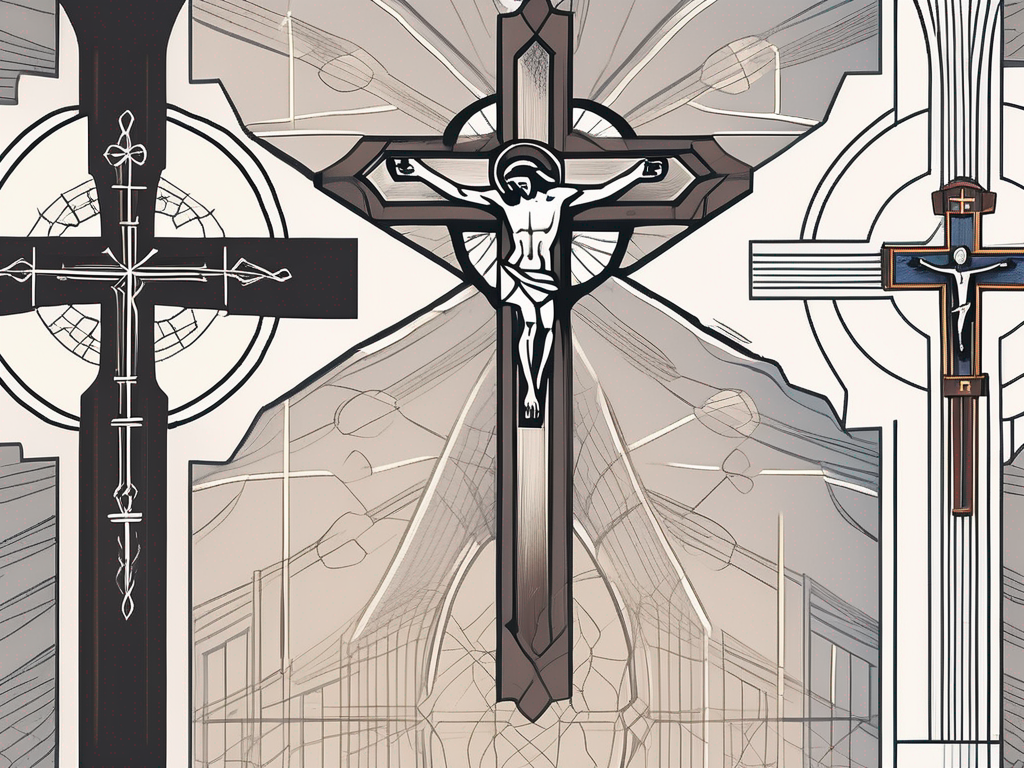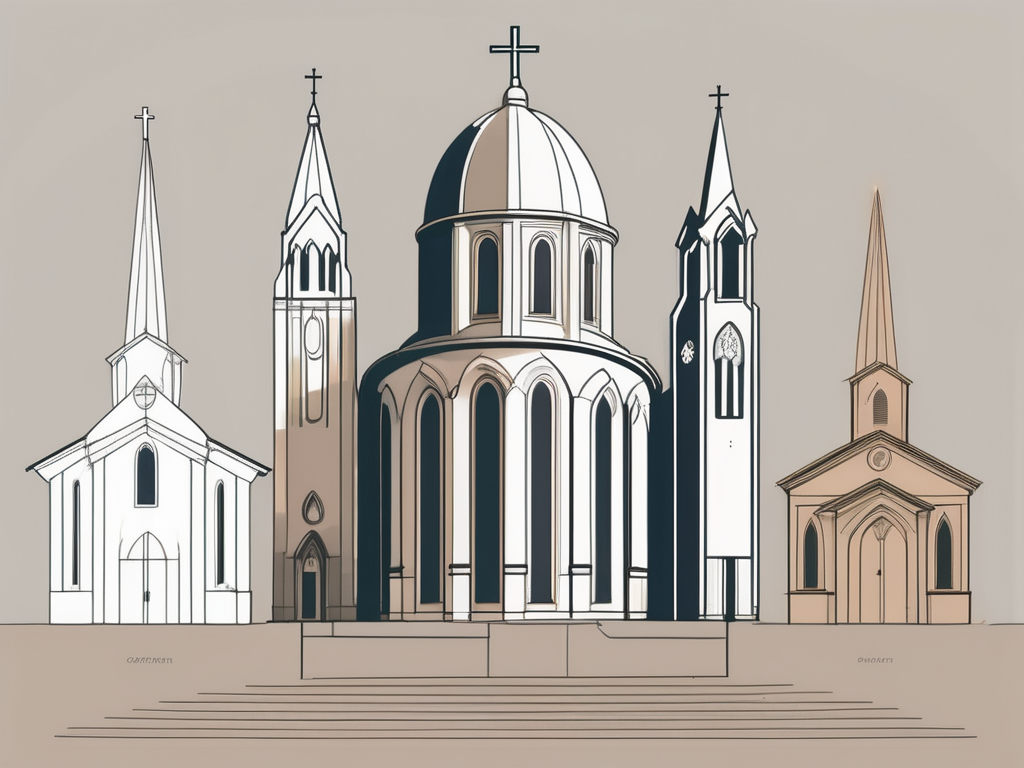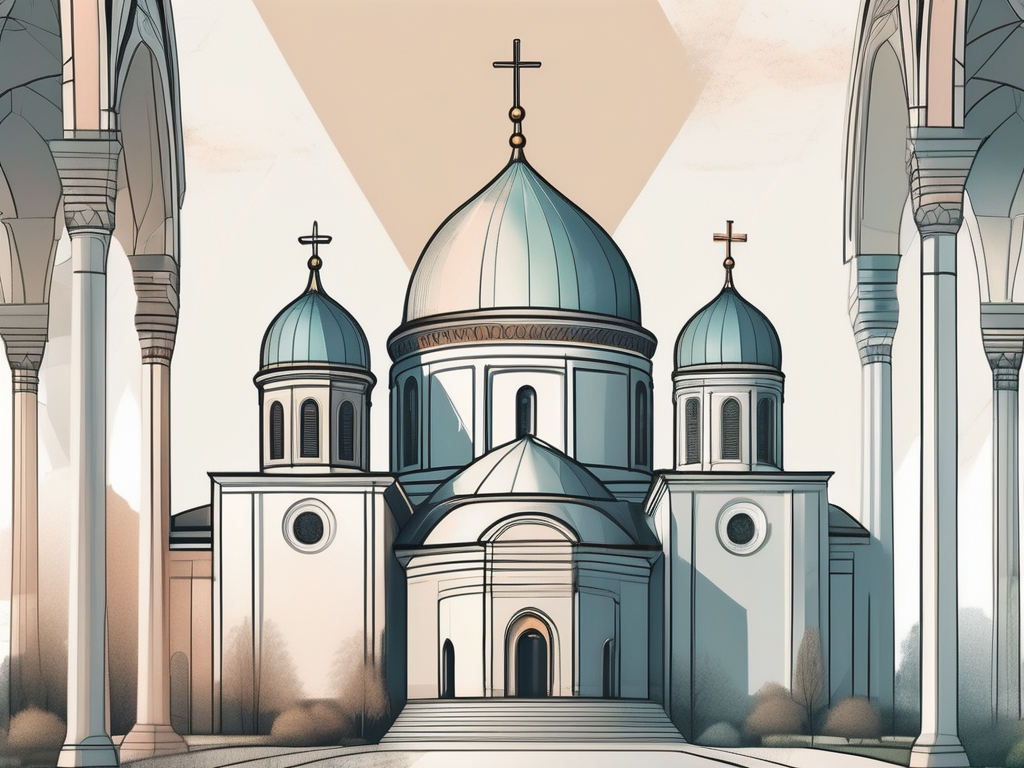As a religious tradition with a rich history spanning over two thousand years, Catholicism is often the subject of curiosity and intrigue. Many people wonder: what exactly do Catholics worship? In this article, we will delve into the beliefs and practices that define the Catholic faith, shedding light on the core elements of their worship.
Understanding the Catholic Faith
Before we explore what Catholics worship, let’s first gain a basic understanding of the Catholic faith. At the heart of Catholicism is a belief in the teachings of Jesus Christ and the authority of the Church. Catholicism places great importance on the sacraments, which are sacred rituals that bring believers closer to God. The Catholic Church also reveres saints and the Virgin Mary, considering them as intercessors between God and humanity.
When delving into the rich tapestry of Catholicism, it becomes evident that the faith is built upon a foundation of centuries of theological development and spiritual practices. The Catholic Church, with its intricate hierarchy and deep-rooted traditions, has shaped the beliefs and practices of its followers throughout history.
The Basic Beliefs of Catholicism
Central to Catholic worship is the belief in the Holy Trinity. Catholics believe in one God who exists in three persons: the Father, the Son (Jesus Christ), and the Holy Spirit. This belief in the Trinity is the cornerstone of the Catholic faith, emphasizing the unity and diversity of God.
Expanding upon the belief in the Holy Trinity, Catholics also hold steadfastly to the doctrine of the Incarnation. This doctrine asserts that Jesus, the Son of God, took on human form and dwelt among humanity. Through his life, death, and resurrection, Jesus offers salvation and eternal life to all who believe in him.
Another fundamental belief in Catholicism is that Jesus is the Son of God and the savior of humanity. Catholics hold that Jesus lived a perfect life, died on the cross for the redemption of sins, and rose from the dead to offer eternal life to those who believe in him.
Within the realm of Catholicism, the concept of grace plays a significant role. Catholics believe that through the sacraments, divine grace is bestowed upon believers, enabling them to grow in holiness and draw closer to God. This understanding of grace as a transformative force is central to the Catholic faith.
The Role of the Church in Catholic Worship
For Catholics, the Church plays a crucial role in their worship. They believe that the Church, led by the Pope and the bishops, is the earthly representative of Christ. It is through the Church that Catholics receive the sacraments and guidance on their spiritual journey. The Catholic Church also places great importance on the Bible as a sacred text, viewing it as inspired by God and providing guidance for living a righteous life.
Within the Catholic Church, the Pope holds a position of immense significance. As the successor of Saint Peter, Catholics believe that the Pope possesses a special authority and is infallible when speaking ex cathedra on matters of faith and morals. This belief in the Pope’s authority ensures unity and coherence within the Catholic Church.
Additionally, the role of the bishops in the Catholic Church cannot be overstated. They are seen as the successors of the apostles and are entrusted with the responsibility of shepherding the faithful. Through their teaching and guidance, the bishops ensure the preservation of the Catholic faith and its traditions.
Furthermore, the Catholic Church places great emphasis on the communal aspect of worship. The faithful gather together in the celebration of the Mass, which is the central act of Catholic worship. Through the Mass, Catholics believe they participate in the sacrifice of Christ and receive the Eucharist, the body and blood of Jesus Christ.
It is also worth noting that the Catholic Church has a rich tradition of liturgical practices and devotions. From the solemnity of the Stations of the Cross to the joyful celebration of the Rosary, these practices serve as avenues for deepening one’s faith and fostering a closer relationship with God.
In conclusion, the Catholic faith is a complex and multifaceted belief system that encompasses a rich tapestry of theological doctrines, spiritual practices, and communal worship. It is a faith that seeks to unite believers with God through the teachings of Jesus Christ, the guidance of the Church, and the transformative power of the sacraments.
The Significance of the Holy Trinity
Now that we have a general understanding of the Catholic faith, let’s delve deeper into some of the key aspects of their worship. At the core of Catholic belief is the Holy Trinity, which encompasses the Father, the Son, and the Holy Spirit. Each person of the Trinity has a unique role in the Catholic understanding of God’s relationship with humanity.
The Father: The Creator of the Universe
In Catholicism, the Father is seen as the creator of the universe and the source of all life. Catholics believe that through prayer and worship, they can establish a personal relationship with God the Father and seek his guidance and blessings in their lives.
When Catholics pray to the Father, they acknowledge his power and authority over all creation. They recognize that he is the one who brought everything into existence and sustains it. The Father’s love for humanity is believed to be infinite and unconditional, and Catholics seek to deepen their understanding of this love through their relationship with him.
Furthermore, Catholics believe that the Father’s role extends beyond creation. He is also seen as the ultimate judge, who will one day hold all accountable for their actions. This belief in divine justice gives Catholics a sense of hope and reassurance, knowing that the Father will ultimately bring about justice and righteousness in the world.
The Son: Jesus Christ’s Role in Salvation
The Son, Jesus Christ, is central to Catholic worship. Catholics believe that Jesus is both fully human and fully divine and that his sacrifice on the cross offers salvation to all who believe in him. Through Jesus, Catholics have access to forgiveness, redemption, and eternal life.
Jesus is seen as the bridge between humanity and God, the one who reconciles us with the Father. Catholics believe that Jesus’ death and resurrection opened the doors to heaven, allowing humanity to be united with God once again. This belief forms the foundation of the Catholic faith and shapes their understanding of salvation.
Moreover, Catholics view Jesus as the perfect example of how to live a virtuous and holy life. His teachings and actions serve as a guide for Catholics, inspiring them to follow in his footsteps and strive for holiness. Jesus’ life is seen as a model of selflessness, compassion, and love, and Catholics seek to emulate these qualities in their own lives.
The Holy Spirit: The Sustainer of Life
The Holy Spirit, often depicted as a dove, is considered the sustainer of life and the guide for Catholics in their spiritual journey. Catholics believe that the Holy Spirit dwells within them, providing them with strength, wisdom, and inspiration to live according to God’s will.
The Holy Spirit is seen as the active presence of God in the world today. Catholics believe that the Spirit works in their lives, guiding them, comforting them, and empowering them to live out their faith. The Spirit’s role is to sanctify and transform believers, helping them grow in holiness and become more like Christ.
Furthermore, the Holy Spirit is believed to bestow spiritual gifts upon individuals, such as wisdom, knowledge, and discernment. These gifts enable Catholics to serve others and contribute to the building of God’s kingdom on earth. The Spirit’s presence in the lives of believers is seen as a source of joy, peace, and hope.
In conclusion, the Holy Trinity holds immense significance in the Catholic faith. The Father, the Son, and the Holy Spirit each play a vital role in the relationship between God and humanity. Understanding and embracing the Trinity is central to the Catholic understanding of God’s love, salvation, and guidance in their lives.
The Importance of the Sacraments
One of the distinguishing characteristics of Catholic worship is the emphasis on the sacraments. Sacraments are sacred rituals that Catholics believe allow them to receive God’s grace and experience his presence in their lives.
The sacraments play a vital role in the Catholic faith, serving as tangible signs of God’s love and mercy. They provide a means for Catholics to encounter the divine and deepen their relationship with God. Each sacrament holds its own significance and purpose, contributing to the spiritual growth and journey of believers.
Baptism and Confirmation: Initiation into the Church
Baptism is the first sacrament a Catholic receives, marking their initiation into the Church. It is a momentous occasion where individuals are welcomed into the faith community, symbolizing their rebirth in Christ. Through the pouring or immersion of water, baptism is believed to cleanse them from original sin and bring them into the community of believers.
Following baptism, Catholics proceed to receive the sacrament of Confirmation. This sacrament is a powerful moment of spiritual growth and maturity, where Catholics receive the Holy Spirit and publicly affirm their commitment to the faith. It is a time of deepening their understanding of the teachings of the Church and embracing their role as witnesses of Christ in the world.
Eucharist: The Heart of Catholic Worship
The Eucharist, often referred to as Holy Communion, holds a central place in Catholic worship. It is considered the source and summit of the Christian life, as Catholics believe that during the Mass, the bread and wine are transformed into the body and blood of Christ. Through receiving the Eucharist, they believe they are uniting themselves with Christ and receiving his grace.
Partaking in the Eucharist is a profound act of worship and thanksgiving, as Catholics remember and commemorate the sacrifice of Jesus on the cross. It is a moment of profound intimacy with Christ, where believers are nourished and strengthened by his presence. The Eucharist also serves as a unifying force, bringing together the faithful as one body in Christ.
Reconciliation and Anointing of the Sick: Healing Sacraments
Catholics also practice the sacraments of Reconciliation (Confession) and Anointing of the Sick. Reconciliation allows Catholics to seek forgiveness for their sins and receive absolution from a priest. It is a sacrament of healing and reconciliation, where individuals experience the mercy and forgiveness of God.
The Anointing of the Sick is a sacrament that offers spiritual healing and strength to those who are seriously ill or facing surgery. Through the anointing with holy oil and the prayers of the Church, individuals are comforted and supported in their time of physical and spiritual need. This sacrament reminds Catholics of the healing ministry of Jesus and the importance of entrusting their suffering to God.
Holy Orders and Matrimony: Sacraments of Service
The sacraments of Holy Orders and Matrimony are considered sacraments of service. Holy Orders involves the ordination of men as deacons, priests, or bishops, enabling them to serve the Church and administer the sacraments. It is a sacrament of consecration, where individuals are called to a life of service and leadership in the Church.
Matrimony, on the other hand, is the sacrament of marriage, seen as a lifelong commitment between a man and a woman. It is a sacred covenant where two individuals join together in love and unity, mirroring the love of Christ for his Church. Through this sacrament, couples are called to selflessness, mutual support, and the nurturing of their relationship as a reflection of God’s love.
Both Holy Orders and Matrimony are essential for the life and mission of the Church, as they contribute to the building of the community and the spreading of the Gospel. They are sacraments that call individuals to serve others and participate actively in the work of God’s kingdom.
The Role of Saints in Catholic Worship
In addition to the Holy Trinity, Catholics also turn to saints for intercession and inspiration in their worship.
Understanding Canonization
Canonization is the process by which the Catholic Church officially recognizes a person as a saint. The Church carefully investigates the person’s life and works, ensuring that they lived a life of holiness and performed miracles. Canonized saints serve as role models and sources of spiritual guidance for Catholics.
Intercession of Saints
Catholics believe that saints, as friends of God, can intercede on their behalf. They often pray to saints, asking for their assistance and guidance in various aspects of life. The intercession of saints is seen as a way to seek divine intervention and support in times of need.
In conclusion, Catholics worship the Father, the Son, and the Holy Spirit – the Holy Trinity. They follow the teachings of Jesus Christ, believe in the sacraments as channels of God’s grace, and seek the intercession of saints. Through their worship and beliefs, Catholics strive to deepen their relationship with God and live a life in accordance with his will.
